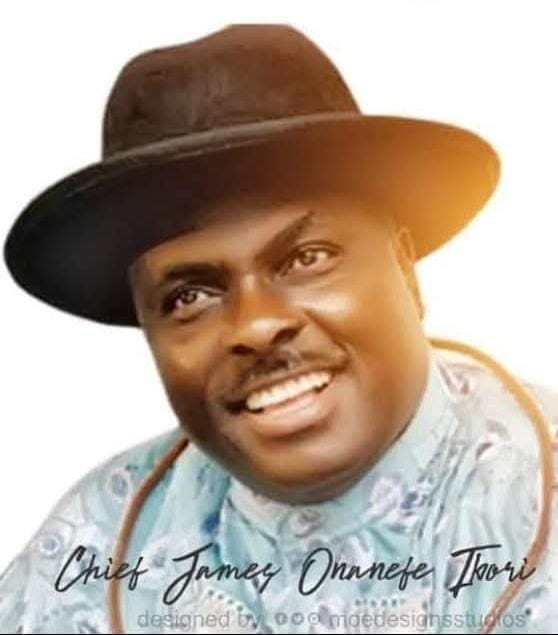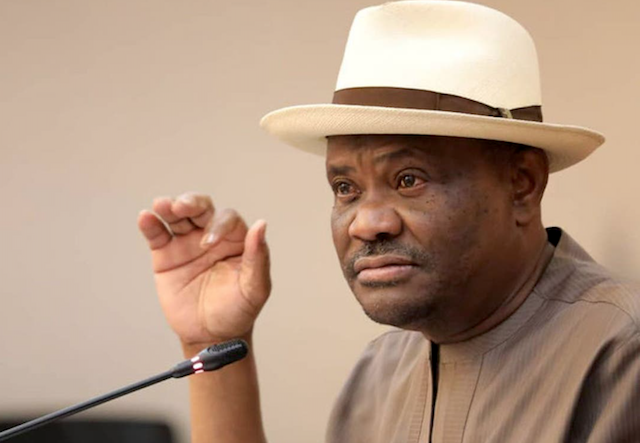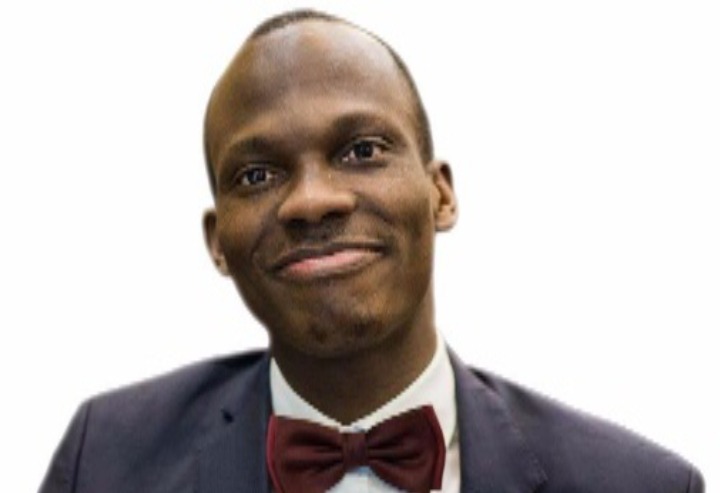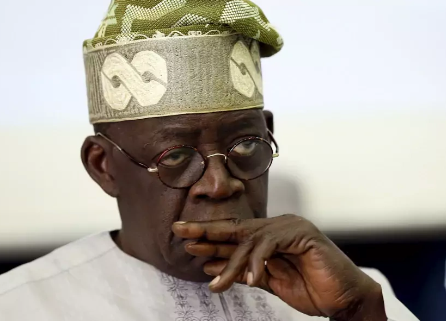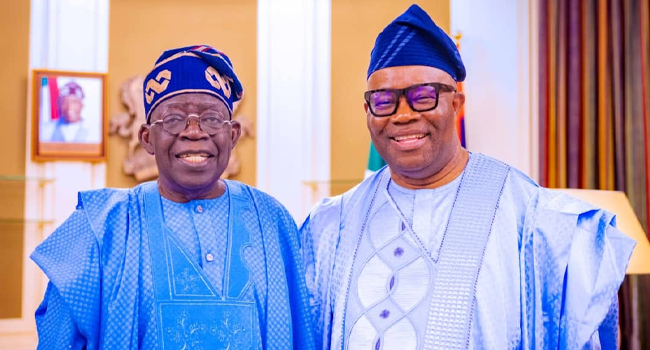Vox populi, vox dei, translated into English language from latin, simply means, the voice of the people is the voice of God.
For too long Nigerians have been conditioned into thinking that leadership can only emanate from those in the corridors of political power-government. So,majority of the populace assume that without government taking the initiative , progresive actions to improve their living conditions can not be undertaken for the good of the individuals in particular, and the nation in general. Hence, for instance ,more often than not, until the national budget is passed annually, the economy of our country suffers a paralysis of sort, as literally everyone depends on the bureacracy for sustainance. In the developed climes, government serves only as a catalyst for entepreneurship and plays the role of providing level playing field as well as serves as the guarantor of security and safety for all members of society to thrive.
As evidence that leadership is not only from those elected into public office, but positive change can be made by individuals and as a group, six (6) outstanding Nigerian firms and individuals who have been leading from the streets by making positive impact on society were singled out for the conferment of the Leading From The Streets merit awards. The Nigerians who merited the honor are:
Prof. Wole Soyinka: He was leading from the streets when he was jailed for 22 months by the military because of an article he wrote and published in the mass media, where he stood against the looming civil war. Our dear professor was incarcerated for speaking against the war that eventually consumed an estimated one million souls over three years (1967-1970), during which his liberty was taken away from him.
It was no surprise that his outstanding leadership, dedication to humanity, and professional expertise did not go unnoticed internationally. Hence, in 1986, he became the Nobel laureate for literature. Prof. Soyinka could have leveraged his popularity to enter politics, as did fellow teacher and former president Nwalimu Julius Nyerere of Tanzania who started off as a teacher activist. However, he did not choose that path to leadership. Instead, he continued leading from the streets. For that reason, he qualifies for the Leading From The Streets award.
Col. Dangiwa Umar: He was also leading from the streets after leaving the military while still immensely popular for his disciplined leadership style and high moral standards. Remarkably, he resisted the allure of joining politics, unlike his bosses, Gen. Olusegun Obasanjo and Gen. Muhammadu Buhari, who became presidents of Nigeria after their military service. Instead, he chose to stay out of government, leveraging his influence to shape policies that promote unity among Nigeria’s multiple ethnic nationalities.
One recent occasion when he did so was when he wrote an open letter to the immediate past president, Muhammadu Buhari, urging him to resist the temptation driven by primordial ethno-religious sentiments to delay or fail to appoint Justice Monica Dongban-Mensem as the President of the Court of Appeal, where she was the next highest jurist in the hierarchy after the retirement of the incumbent.
Following Col. Umar’s open letter, President Buhari confirmed the appointment of Justice Dongban-Mensem, a female Christian from Plateau State as Appeal Court president. That intervention, and several others in the interest of the masses, have earned Col. Umar the Leading From The Streets award.
Barrister Allen Onyema: The chairman and CEO of Air Peace is renowned for rescuing Nigerians abroad during times of crisis or war, resulting in their being stranded in a strange land.
He organized rescue missions with his airplanes to Libya, Sudan, and South Africa during internal crises in these countries, including during xenophobic attacks against Nigerians in South Africa. He repeated the same feat by flying his aircraft to Ukraine to rescue Nigerians trapped when Russia invaded the country.
To crown it all, he recently lowered the price of airline tickets to the UK by offering his flights at substantially reduced rates compared to the exorbitant amounts previously charged by foreign airlines monopolizing the routes. Another profound gesture was the rebate on ticket costs that Airpeace offers to Nigerian students to encourage them to return home during holidays.
In his reckoning, the high cost of tickets had compelled some not to return home for many years. It is remarkable that the last time one heard of ticket rebates for students was in the days of Nigeria Airways. Barrister Onyema did all these philanthropic gestures out of love for our country, without being in the corridors of political power. As such, he qualifies to be recognized as one of the Nigerians Leading From The Streets.
Chief Mike Adenuga, with his Globacom mobile telecommunications services, revolutionized GSM telephone costs by introducing per-second billing instead of the per-minute template operated by MTN and Econet (now Airtel) since the commencement of the service in Nigeria in 2000. With the per-minute billing system, Nigerians were burdened by the high cost of making GSM calls, as they had to pay for minutes even if their calls lasted only seconds, which was an unfair practice.
After initial setbacks in obtaining the license to operate due to technical hitches created by bureaucracy, Chief Adenuga’s Globacom, the only indigenous GSM service provider, entered the telecommunications space with revolutionary per-second pricing, to the relief of Nigerians who could not be rescued from the exploitation by the regulatory authority, the Nigerian Telecommunications Commission (NCC).
Chief Adenuga’s Glo also reduced the cost of SIM card packs from N15,000 to N5,000. Thus, without being in the corridors of power but from the streets, Chief Mike Adenuga has positively impacted the lives of Nigerians. Therefore,as the owner of Globacom, he merits being identified as someone Leading From The Streets and is receiving the award.
Dr. Olisa Agbakoba, a lawyer, human rights advocate, and one-time President of the Nigerian Bar Association (NBA), has been leading from the streets. He began doing so when he led the Civil Liberties Organization (CLO) in pushing for the military to relinquish their hold on political power, which began with the 1966 coup that toppled the First Republic.
Despite personal risks to himself and fellow advocates, they dared the military, got arrested, and were consequently bludgeoned. However, they persisted until the men and women in khaki, who were usurpers of political power, were compelled to relinquish political power and retreat to their barracks. Dr. Agbakoba made all those sacrifices selflessly in the interest of the critical mass of Nigerians who were craving democratic rule, which they had been denied by the military juntas.
Due to his immense popularity after successfully helping to end military rule, he could have ventured into politics to justifiably benefit from his hard work, as other ex-NBA presidents have done by possibly vying for the governorship of his state. Perhaps he might have succeeded in becoming the governor of Anambra State, as Akeredolu (of blessed memory) did in Ondo State after serving as NBA president. But he did not; instead, he preferred to continue Leading From The Streets, hence he is receiving the award.
Alhaji Aliko Dangote is the foremost Nigerian leading from the streets. With his Dangote Group of companies that has touched many lives , and which began with the importation of commodities into Nigeria, he has transitioned into the largest manufacturer of the items his firm used to import. By doing so, he became the largest employer of labor in Nigeria and, by implication, the highest taxpayer. He recently remarked that 52% of the cost of cement goes to government as tax.
Currently a multi-billionaire in dollars and the richest man in Africa, Alhaji Dangote’s latest investment in a mega refinery ($20 billion and 650,000 barrels per day capacity) in Lagos is so revolutionary that it is about to result in the shutdown of some refineries in Europe, which mainly relied on West African countries as a market for their export of petrol and diesel to power factories and homes in the region, especially in Nigeria.
For having the confidence to invest an estimated twenty billion dollars in the 650,000-barrels-a-day refinery and fertilizer company that would not only help Nigeria but the entire continent of Africa conserve foreign exchange that was previously being sent to Europe for the importation of petroleum products and food, he is Leading From The Streets.
To cap it all, Alhaji Dangote recently reduced the price of diesel oil from about N1,650 per liter to less than N1,000, representing about a 40% drop in price. That’s not all; with his immense wealth, he recently invested a whopping N15 billion to obtain rice and other palliatives for distribution to the vulnerable in our society and help alleviate the hardship triggered by the ongoing socio-economic reforms aimed at stabilizing our country. Africa’s most affluent man could have leveraged his popularity and vied for the presidency of Nigeria, and he might have won.
If he did so, Dangote would have been following in the footsteps of the fabulously wealthy Chief MKO Abiola (of blessed memory), who was the presumed winner of the June 12, 1993, presidential elections. Even the current South African president, Cyril Ramaphosa, was one of the richest men in his country, estimated to be worth $450 million, before he contested and became president of his country in 2018.
But Alhaji Dangote elected not to go in that direction and has been Leading From The Streets. It is for these reasons that Africa’s richest man, with a net worth of $15.5 billion and ranked 107th richest in the world, is being honored with the Leading From The Streets award.
These individuals that have been honored, exemplify leadership through their actions and dedication to society, proving that impactful leadership transcends public office.
It is remarkable that the honor is not bestowed only on entrepreneurs, but also on those that have demonstrated leadership through advocacy for democracy, human rights and inclusiveness of all Nigerians in the scheme of things.
Without equivocation, the Leading From The Streets award is our own small equivalent of the Nobel Prize, and it carries the goodwill of appreciative Nigerians. It is also similar to Mo Ibrahim’s leadership award for good governance, which recognizes public officials in Africa who lead with integrity. However, unlike the Nobel and Mo Ibrahim leadership awards, the Leading From The Streets honor has no monetary value but confers social values such as respect and admiration on the recipients from all people of goodwill in our society.
Certainly, the list of Nigerians leading from the streets who merit the award is not exhaustive. But we are starting with these six exemplary leaders. When we publicly present our forthcoming book, “Africa, Exporting Wealth, Importing Poverty,” we will unveil our next laureates, recognized not for their services to our beloved country from the corridors of political power, but for Leading From The Streets (outside of government) by breaking national barriers to deliver goods and services from Nigeria to the rest of Africa and beyond.
For clarity, the award will feature not just those who have positively impacted our society through activities outside of government, such as the revolution of business practices leading to employment creation, whom we have just honored.
But in the next edition of the award, we will go beyond that by also honoring those whose businesses have become conglomerates in Africa by exporting Nigerian goods and services, similar to how South Africa’s MTN and DSTV have been exported to Nigeria and the rest of Africa; Kenya’s tea, flowers, and coffee are exported to other African nations, Europe and the rest of the world; Egypt’s export of nitrogenous fertilizer around the globe; and Cote D’Ivoire’s and Ghana’s export of cocoa to the rest of the world.
The truth is that there are firms in Nigeria fast becoming like European and American conglomerates that need to be recognized and encouraged as economic growth drivers. For instance, apart from some of the first tier banks-Zenithbank, UBA, Accessbank , Gtbank that dominate African banking landscape and with presence in Europe , Middle East, North America and Asia, there are the likes of Flutterwave and Paystack, founded by Nigerian youths and exported across the world.
Against the foregoing backdrop, I have no doubt that Nigeria possesses the capacity to export all the products currently being exported by the fellow African countries mentioned earlier. However, our country has been hobbled by a fixation on oil and gas exports as the main source of foreign exchange income. That is a limitation responsible for Nigeria’s apparent arrested development.
Hopefully, by rewarding those making waves in areas other than the well-beaten path of wealth creation—mainly through harnessing oil and gas resources and government contracting—they will be encouraged to continue focusing on productive paths. This includes adding value to natural raw materials, such as refining crude oil into fuel and processing raw cocoa into chocolate, as well as delivering innovative products and services like financial technology (Fintech) applications and other innovative activities such as deploying artificial intelligence, to catalyze the progress and development of our country.
I am convinced beyond any doubt that our country is currently punching below its weight. But with the right people leading the nation,Nigeria can get out of the woods sooner than anticipated.
That is especially if the Renewed Hope agenda of the incumbent administration is pursued with more empathy and through leading by example as well as concerted efforts made to carry the critical mass of Nigerians along by making them strategic partners in the socioeconomic reform agenda of the incumbent government.
That can be achieved by getting the citizens to own it so that it would be less painful, as opposed to the current situation whereby the reforms are looking like they are being forced down the throats of the masses , willy-nilly.
Magnus Onyibe,an entrepreneur,public policy analyst ,author,democracy advocate,development strategist,alumnus of Fletcher School of Law and Diplomacy,Tufts University, Massachusetts,USA and a former commissioner in Delta state government, sent this piece from Lagos, Nigeria.
To continue with this conversation and more ,please visit www.magnum.ng
